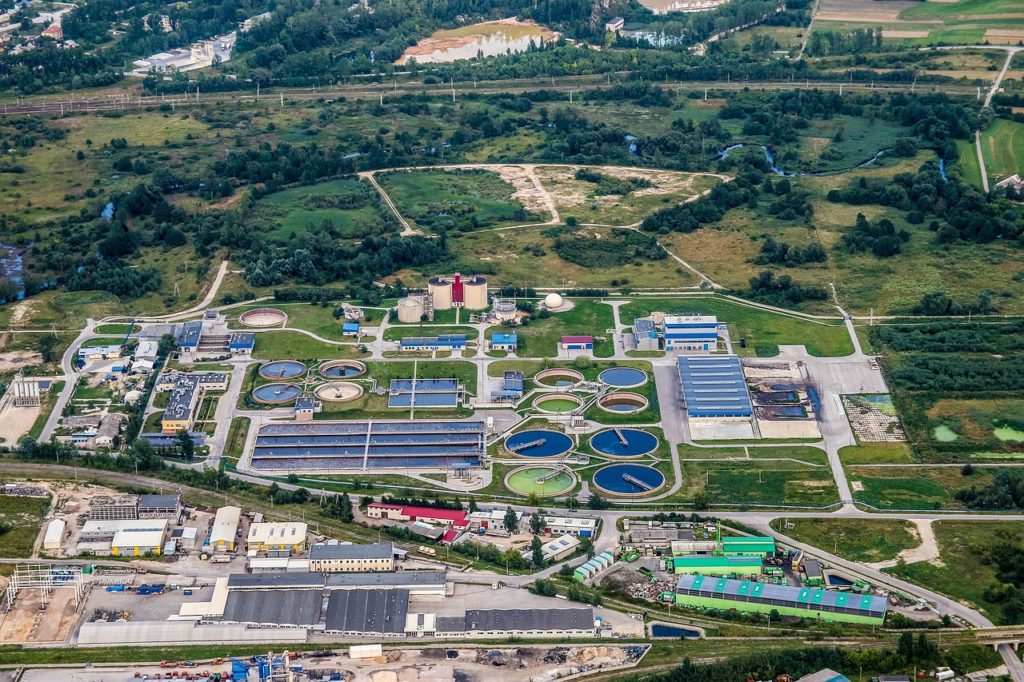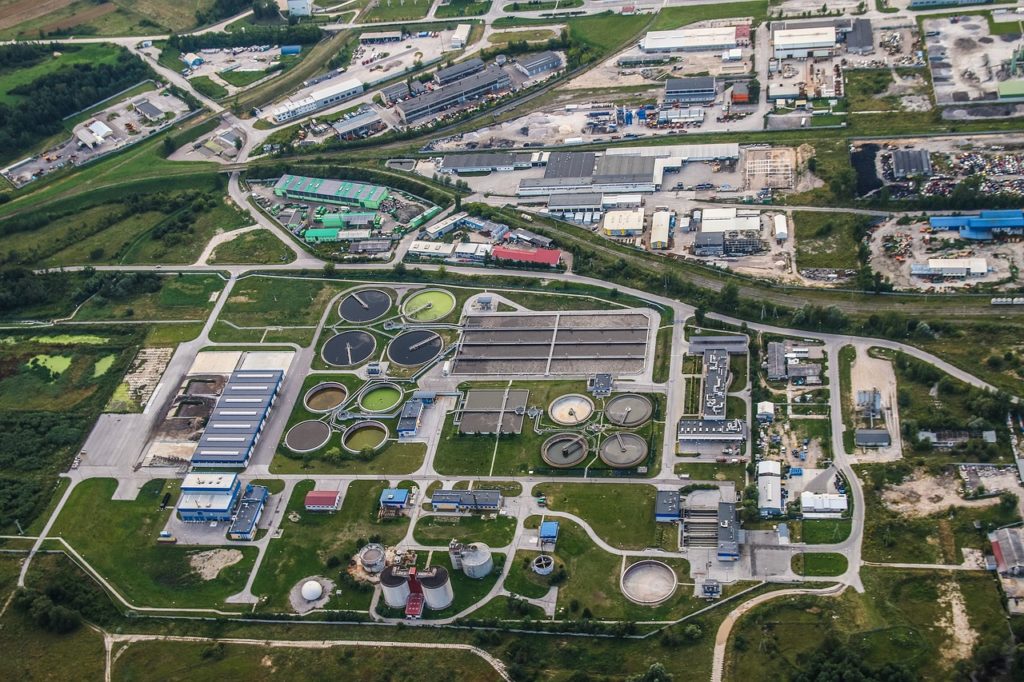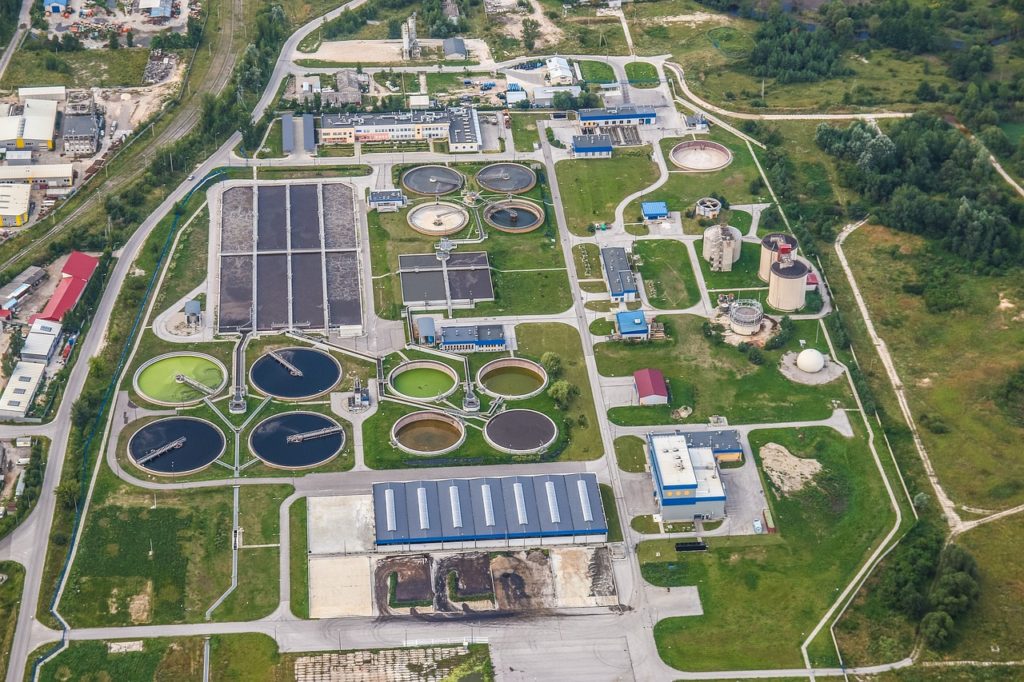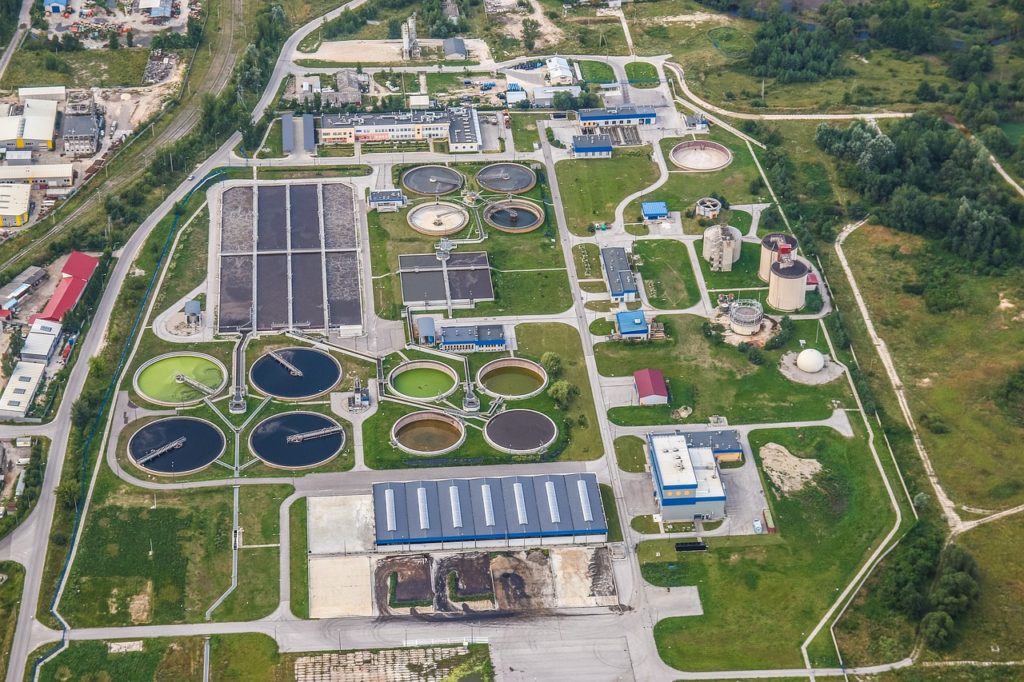Are you curious about the wide range of career opportunities within the field of wastewater treatment? Look no further, as this article will delve into the various options available to individuals interested in building a rewarding career in this industry. From wastewater operators ensuring the safe and efficient treatment of sewage to environmental engineers designing innovative solutions to manage water resources, the field of wastewater treatment offers diverse and fulfilling roles. Whether you are passionate about environmental conservation or seeking stability in a rapidly growing sector, exploring career opportunities in wastewater treatment opens the door to a fulfilling and impactful career path.

Careers in Wastewater Treatment
Are you interested in making a positive impact on the environment and the health of communities? A career in wastewater treatment might just be the perfect fit for you! As a wastewater professional, you’ll be responsible for ensuring the safe and effective treatment of wastewater before it can be released back into the environment. This comprehensive article will provide you with all the information you need to know about the skills and qualifications required, the job roles available, the salary and benefits you can expect, and the advancement opportunities that could be waiting for you in this field.
1. Skills and Qualifications
To excel in the field of wastewater treatment, there are several key skills and qualifications that are highly valued. These include:
Technical Knowledge
Having a strong understanding of the technical aspects of wastewater treatment is crucial. This includes knowledge of treatment processes, equipment operation, and the ability to interpret and analyze data from monitoring systems. Staying up-to-date with the latest advancements and industry regulations is essential to ensure the effective treatment of wastewater.
Analytical Skills
As a wastewater professional, you’ll need to be able to analyze complex data and make informed decisions. This requires excellent analytical skills and the ability to identify trends, troubleshoot issues, and optimize treatment processes. Having a keen eye for detail and a logical approach to problem-solving will greatly benefit you in this role.
Problem-Solving Skills
Wastewater treatment can present various challenges and unexpected situations. Being able to think critically, come up with creative solutions, and adapt to changing circumstances is essential. Having a proactive mindset and the ability to work well under pressure will help you navigate through the complexities of the job.
Communication Skills
Effective communication is key in any career, and wastewater treatment is no exception. You’ll need to be able to communicate clearly and concisely with colleagues, managers, and regulatory authorities. Being able to explain complex concepts in a simple and understandable manner is essential for ensuring efficient teamwork and compliance with regulations.

2. Job Roles
There are various job roles available within the field of wastewater treatment, each with its own unique responsibilities and requirements. Some of the common job roles in this field include:
Wastewater Treatment Plant Operator
As a wastewater treatment plant operator, you’ll be responsible for operating and maintaining the equipment and systems used in wastewater treatment plants. This includes monitoring processes, performing routine maintenance, and troubleshooting any issues that may arise. A background in engineering or a related field is often required for this role.
Wastewater Engineer
Wastewater engineers play a vital role in designing and implementing wastewater treatment systems. They are responsible for analyzing the specific needs of a community or facility, designing treatment processes, and overseeing construction and operation. A degree in civil or environmental engineering is typically required for this role.
Water Quality Specialist
As a water quality specialist, your focus will be on monitoring and ensuring the quality of treated wastewater before it is discharged back into the environment. You’ll be responsible for conducting tests, maintaining records, and ensuring compliance with regulatory standards. A strong background in chemistry or environmental science is often required for this role.
Chemical Technician
Chemical technicians play a crucial role in the treatment process by handling and dosing chemicals to neutralize contaminants in wastewater. They work closely with plant operators and engineers to ensure the proper implementation of treatment processes. A background in chemistry or a related field is typically required for this role.
3. Salary and Benefits
When considering a career in wastewater treatment, it’s important to evaluate the potential salary and benefits that come with the job. While salaries can vary depending on factors such as experience, education, and location, the field generally offers competitive compensation. Here is an overview of the average salary range and some common employment benefits:
Average Salary Range
The average salary range for professionals in the wastewater treatment field can vary. Plant operators and technicians typically earn between $40,000 and $60,000 per year, while engineers and water quality specialists can expect salaries ranging from $60,000 to $90,000 or more, depending on their level of experience and expertise.
Employment Benefits
In addition to competitive salaries, many wastewater treatment professionals enjoy a range of employment benefits. These can include health and dental insurance, retirement savings plans, paid time off, and opportunities for professional development and continuing education. The specific benefits offered can vary depending on the employer and the location.

4. Advancement Opportunities
One of the great aspects of a career in wastewater treatment is the potential for advancement. With the right skills, experience, and dedication, you can progress in your career and take on more challenging and fulfilling roles. Here are some of the advancement opportunities available in this field:
Continuing Education and Certifications
Continuing education and obtaining certifications can greatly enhance your career prospects in wastewater treatment. There are various specialized certifications available, such as Certified Wastewater Operator or Certified Water Quality Professional, which can demonstrate your expertise and dedication to the field. Pursuing additional education or advanced degrees can also open doors to more senior positions.
Management and Supervisory Roles
As you gain experience and develop strong leadership skills, you may have the opportunity to move into management or supervisory roles. In these positions, you’ll be responsible for overseeing the operations of a treatment plant, managing a team of professionals, and ensuring compliance with regulations. The ability to effectively manage people, resources, and processes is crucial for success in these roles.
Research and Innovation
For those with a passion for research and innovation, there are opportunities to contribute to the advancement of wastewater treatment technologies and processes. Working in research and development or collaborating with academic institutions and industry partners can allow you to explore new solutions, improve efficiency, and contribute to the sustainability of wastewater treatment practices.
5. Education and Training
To embark on a career in wastewater treatment, it’s important to acquire the necessary education and training. Here are some of the pathways you can take:
Degree and Certification Programs
Many universities and colleges offer programs specifically focused on wastewater treatment or related fields, such as civil or environmental engineering, chemistry, or environmental science. These programs provide a solid foundation of knowledge and can lead to entry-level positions in the field. Additionally, pursuing relevant certifications, as mentioned earlier, can further enhance your qualifications.
Internships and Apprenticeships
Internships and apprenticeships are valuable opportunities for hands-on learning and practical experience. Many wastewater treatment facilities offer internship or apprenticeship programs, allowing you to work alongside professionals and gain valuable insights into the field. These programs can provide a stepping stone to full-time employment and offer opportunities to apply your theoretical knowledge in a real-world setting.
Professional Development Courses
Continuing education is crucial in staying up-to-date with the latest advancements and regulations in wastewater treatment. There are various professional development courses and workshops available that can help you expand your knowledge and develop new skills. These courses can cover topics such as wastewater treatment technologies, regulatory compliance, and management strategies.
6. Job Market Outlook
The job market for wastewater treatment professionals is expected to see steady growth in the coming years. Here are some key factors influencing the job market outlook:
Growing Demand
As populations continue to grow and environmental regulations become increasingly stringent, the demand for wastewater treatment professionals is expected to increase. The need for clean water sources and the protection of the environment make wastewater treatment a critical field that will continue to be in high demand.
Job Opportunities
The demand for wastewater treatment professionals is not limited to a specific region, making job opportunities available in various locations. Municipalities, industrial facilities, engineering firms, and consulting companies are just a few examples of employers seeking skilled professionals in this field. With the right qualifications, you can explore opportunities in both the public and private sectors.
Job Stability
Wastewater treatment is an essential service and plays a crucial role in maintaining public health and environmental sustainability. This makes the field relatively stable even during economic downturns. As long as communities require wastewater treatment services, the job market for professionals in this field is expected to remain stable.
7. Industry Trends
The field of wastewater treatment is constantly evolving to meet the challenges of the modern world. Here are some notable industry trends:
Sustainable and Green Practices
In response to the growing concern for environmental sustainability, the wastewater treatment industry is embracing sustainable and green practices. This includes implementing energy-efficient technologies, optimizing treatment processes to minimize resource consumption, and exploring ways to recover valuable resources from wastewater, such as energy and nutrients.
Technological Advancements
Advancements in technology are revolutionizing the wastewater treatment industry. From the development of more efficient treatment processes to the use of advanced monitoring systems and automation, technology is enabling greater precision, efficiency, and reliability in wastewater treatment operations. Being able to adapt to and embrace these technological advancements is essential for professionals in this field.
Regulatory Compliance
Regulations regarding wastewater treatment and disposal are becoming increasingly stringent. Governments and regulatory authorities are placing greater emphasis on ensuring the protection of water sources and the environment. Staying up-to-date with current regulations and having the ability to implement compliant practices is vital for wastewater treatment professionals.
8. Work Environment
Working in wastewater treatment can involve a diverse range of work environments. Here are some key aspects of the work environment in this field:
Indoor and Outdoor Settings
Depending on your role, you may spend time working in both indoor and outdoor settings. Treatment plants often require hands-on work and monitoring of equipment, which may involve exposure to various weather conditions. Additionally, office spaces may be used for tasks such as data analysis, reporting, and communication.
Hands-On Work
Wastewater treatment involves hands-on work, including operating and maintaining equipment, conducting tests, and performing routine maintenance. This aspect of the job can be both physically demanding and rewarding, as you play a direct role in ensuring the effective treatment of wastewater and the protection of the environment.
Safety Measures
Working in wastewater treatment requires adherence to strict safety protocols. This includes the proper use of personal protective equipment, such as gloves and masks, as well as following safety procedures when working with chemicals or operating equipment. Training and awareness of potential hazards are essential to maintaining a safe work environment.
9. Challenges
While a career in wastewater treatment can be fulfilling and impactful, it also presents its own set of challenges. Here are some of the common challenges faced by professionals in this field:
Environmental and Health Risks
Working with wastewater and chemicals carries inherent environmental and health risks. Exposure to pathogens, toxins, and hazardous substances is a concern in wastewater treatment facilities. However, with proper training, adherence to safety protocols, and the use of personal protective equipment, these risks can be effectively managed.
High Workload
Wastewater treatment can involve high workloads, especially during peak periods or when responding to emergencies. Professionals in this field may need to work long hours, including nights, weekends, and holidays, to ensure the continuous operation of treatment facilities. Strong time management and the ability to prioritize tasks are important skills for managing a demanding workload.
Complex Problem-Solving
Wastewater treatment can present complex challenges that require innovative problem-solving skills. From addressing equipment malfunctions to optimizing treatment processes and ensuring regulatory compliance, professionals in this field must be able to identify and address issues efficiently. The ability to think critically and make informed decisions is crucial for successful problem-solving.
Emotional Stress
Dealing with the nature of wastewater and its potential impact on the environment and public health can be emotionally taxing. Wastewater professionals may face the pressure of ensuring the safe treatment of wastewater while managing public expectations and regulatory requirements. Developing resilience and seeking support networks can help in coping with the emotional stress associated with this profession.
In conclusion, a career in wastewater treatment offers a unique opportunity to make a positive impact on the environment and the health of communities. With the right skills, qualifications, and dedication, you can embark on a rewarding and fulfilling career in this field. Whether you choose to be a wastewater treatment plant operator, engineer, water quality specialist, or chemical technician, the possibilities for growth and advancement are numerous. So, why not consider a career in wastewater treatment and be a champion for clean water and sustainable practices?

